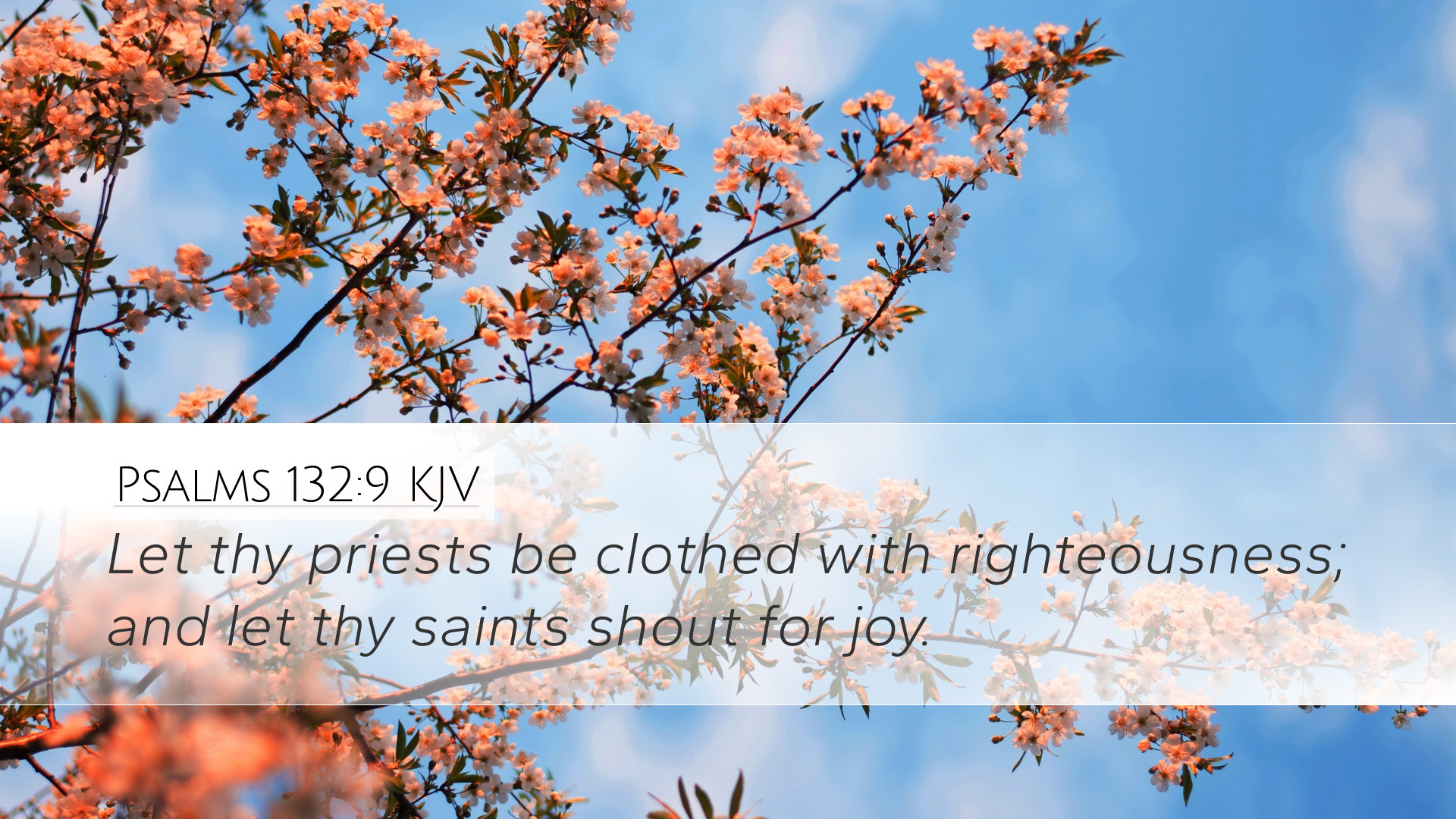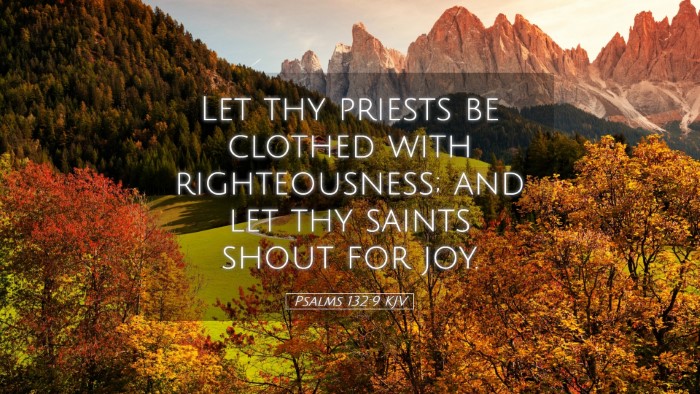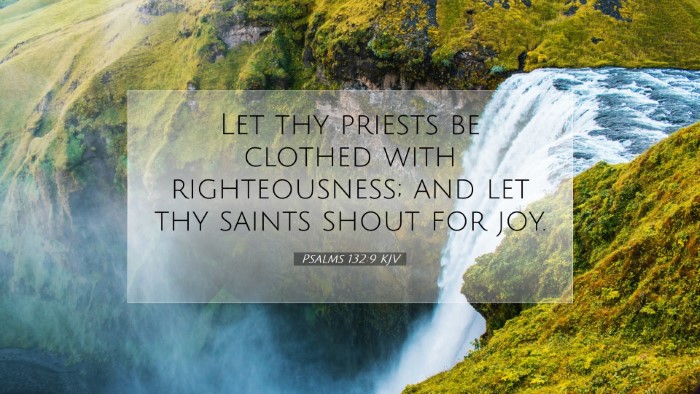Commentary on Psalms 132:9
Psalms 132:9 states, "Let your priests be clothed with righteousness; and let your saints shout for joy." This verse, though concise, encapsulates profound themes regarding holiness, leadership, and communal joy. A synthesis of insights from public domain commentaries permits a multilayered understanding that can benefit pastors, students, theologians, and Bible scholars alike.
Contextual Overview
Psalm 132 is a Song of Ascents, attributed to David, and reflects his desire for God's dwelling place and the importance of the covenant between God and Israel. The specific verse in question emphasizes the roles of the priests and the community in relation to righteousness and joy. The psalmist articulates a vision of ideal priesthood and worship that is worthy of God's presence.
Clothing of the Priests
"Let your priests be clothed with righteousness" highlights the significance of righteousness in the lives of spiritual leaders. The imagery of clothing suggests that righteousness is not merely an inner quality but should be outwardly visible and recognized. Various commentaries elucidate this theme:
-
Matthew Henry notes that the righteousness of priests is imperative for their ministry. He emphasizes that their moral conduct must reflect their sacred duties, as their integrity impacts the state's relationship with God.
-
Albert Barnes elaborates that the righteousness spoken of may refer to both the personal holiness required of the priests and the just administration of their office. For Barnes, this is a call for true moral character, without which their service would be ineffectual.
-
Adam Clarke provides insight into the historical context of priestly vestments, stating that while physical garments are important, the underlying principle is that of inner purity and holiness which must characterize those who serve in sacred roles.
The Role of the Saints
Following the priestly directive, the psalmist calls for the saints to "shout for joy." This collective expression of joy is vital for the community's spiritual health and its recognition of God's favor:
-
Matthew Henry posits that the joy of the saints is a response to the righteousness embodied by their leaders. When the priests are righteous, the community has grounds for rejoicing, knowing they walk in covenantal fidelity with God.
-
Albert Barnes observes that joy is not merely an emotional response but an essential aspect of worship. The sound of joyful praise signifies the well-being of a community aligned with God's will and favor.
-
Adam Clarke suggests that the communal aspect of joy underscores the importance of shared spiritual experiences. The saints' shout represents unity in worship and gladness in being part of God's covenant community.
Theological Implications
This verse presents several significant theological implications:
-
The Nature of Leadership: Righteousness in leaders is not optional but mandatory, emphasizing the theological notion of holiness as a prerequisite for effective service. A priesthood lacking righteousness detracts from the community’s worship experience.
-
Community and Worship: The interconnectedness of priests and the faithful signifies that corporate worship is dependent on the collective spiritual condition of its leaders and participants. Healthy worship is a reflection of an entire community’s alignment with God’s standards.
-
Joy as a Response to Divine Favor: The enthusiastic shout of the saints reflects a theological understanding that joy arises from the recognition of God's grace and presence, suggesting that true worship encompasses both holiness and vibrant expressions of joy.
Pastoral Applications
For pastors, there are practical applications embedded within this verse that can be extracted:
-
Preaching on Righteousness: Pastors are called to emphasize the importance of personal righteousness in their lives and among their congregations. It serves as a foundational principle for Christian leadership.
-
Encouraging Community Joy: Leaders should foster environments where joy is encouraged through worship and communal praise. This involves creating spaces that facilitate genuine expressions of happiness in Christ.
-
Modeling Leadership: Pastors must be aware that their lives serve as models for their congregations. Their integrity, humility, and holy living should inspire congregants to pursue a deeper relationship with God.
Conclusion
Psalms 132:9 encapsulates the vital relationship between leadership and community within the framework of worship. Through the insights of venerable commentators, we see that the righteousness of clergy directly impacts communal faith experiences. The joyous shout of the saints is an expression of gratitude rooted in their leaders' integrity and a clear sign of God’s favor. Therefore, this scripture offers enduring principles relevant for righteous leadership and joyful worship, serving as a guiding light for past and present faith communities.


